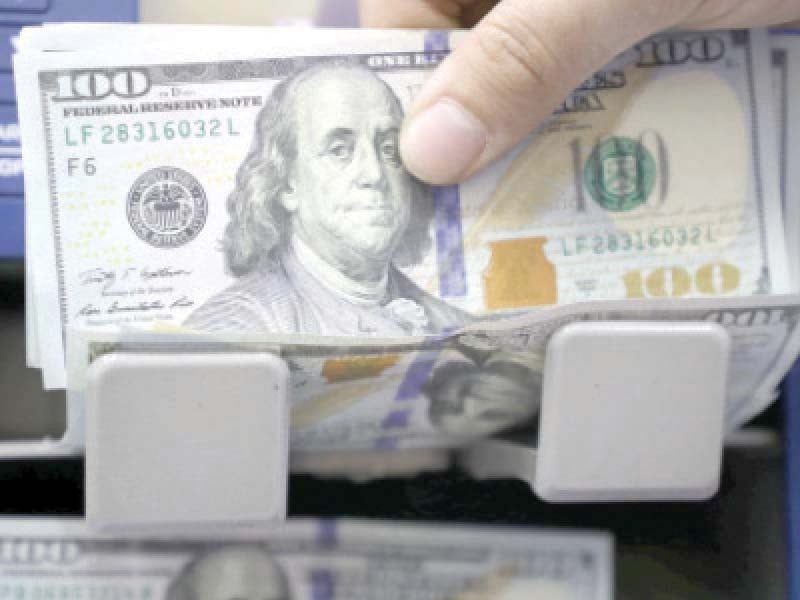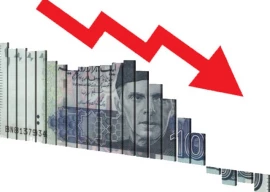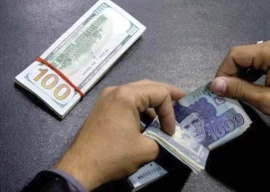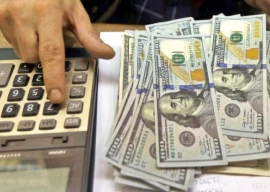
Pakistan Customs is not responsible for curbing smuggling at international borders and its role is limited to cities only, said the Customs Department head of operations on Thursday while again ruling out the role of smuggling in the record high price of dollars in the country.
Mukarram Jah, a member of customs operations of the Federal Board of Revenue (FBR) said, “People hoarded the currency in hopes of getting better returns due to the weakening economic conditions,” adding that the blame should not be thrown on currency smuggling.
Speaking after the launch of a new mobile application – PASS TRACK – which aims to facilitate international passengers in filing declarations of foreign currency at the time of international travel, even before coming to the airport.
The app provides step-by-step guidance to travellers making it easier for them to file declarations. The app will also show all the previous declarations made in the calendar year and the available annual limit. The data immediately becomes available in the customs system to departure and arrival monitoring officers.
“Pass Track is part of FBR’s resolve to make an all-out effort in creating a culture of compliance through technology-based solutions and eliminating human intervention,” said Jah.
The State Bank of Pakistan (SBP) has revised the cash-carrying limits for outbound passengers; the maximum per-passenger limit per visit is $5,000, which is also capped at $30,000 per calendar year. Incoming passengers, when in possession of foreign currency exceeding $10,000 or its equivalent, are also required to file a declaration. Moreover, Pakistani currency can be taken out with a maximum limit of Rs10,000.
He added that the role of currency smuggling, in the current dollar shortage crisis, has been grossly exaggerated by vested interests. According to Jah, people are hoarding the currency in big numbers due to the huge gap between the interbank and black-market rates.
After being unable to sustain the rupee-dollar parity at Rs231 to a dollar for a longer period, the government gave up administrative control of the exchange rate – leaving it to the current market forces, which pushed its value to around Rs271 – record devaluation in the span of one week.
Pakistan is facing a serious currency shortage due to the huge gap between its inflows and outflows. The outflow requirements are not being met by the inflows and as a result, people have started hoarding the currency as well as avoiding formal banking channels to get better rates. Customs, however, has doubled its efforts to contain smuggling, with the number of seizure cases and confiscated amount suddenly increasing.
In 2022, customs confiscated $4.5 million in equal foreign currency in over 100 cases – a figure that was only $270,000 in 26 cases in the calendar year of 2021, according to the member customs operations. This was the highest amount that the Customs Department has ever confiscated.
He highlighted that the international borders were the responsibility of other law enforcement agencies. “Our operations are limited to cities and few have a limited number of squads,” he added. “Pakistan has not yet fenced a 200km stretch on the Taftan-Dalbidin border while the Pak-Iran border is also prone to smuggling.”
Published in The Express Tribune, February 3rd, 2023.
Like Business on Facebook, follow @TribuneBiz on Twitter to stay informed and join in the conversation.




1730806656-0/BeFunky-collage-(23)1730806656-0-165x106.webp)














1730706072-0/Copy-of-Untitled-(2)1730706072-0-270x192.webp)
COMMENTS (3)
Comments are moderated and generally will be posted if they are on-topic and not abusive.
For more information, please see our Comments FAQ